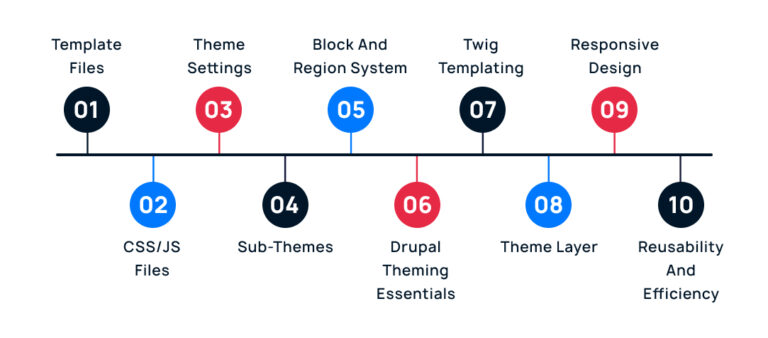
Customer portals represent an increasing trend that gives customers authority in service interactions. Through these portals, customers can schedule appointments, track the progress of their ongoing jobs, view their invoices, and communicate with the service teams directly.
Mobile-friendly interfaces boost adoption among field workers, shorten the learning curve of new users, and allow technicians to perform better. Offline functionality is especially critical, enabling workers to conduct uninterrupted work in remote areas with poor connectivity.
Integration of the Internet of Things (IoT) transforms the field service landscape by enabling real-time equipment monitoring and predictive maintenance. Integrating IoT allows FSM software to feed data into connected devices and pull actionable insights to aid service delivery.
Contactless Signatures
The comprehensive reporting capabilities allow businesses to understand inefficiencies, track service request trends, and decide on resource allocation and training needs. Predictive analytics helps businesses and organizations anticipate service demands and improve planning and preparedness.
Therefore, it is critical that the mobile interface is user-friendly and responsive enough to ensure smooth task management in the field, even under challenging conditions or in remote areas.
Integrations with BI tools like Tableau or Microsoft Power BI make it easier to visualize and interpret the data. Coupled with ERP, such analytics ensure end-to-end views of business operations.
Real-Time Notification and Alerts
Beyond aiding logistical efficiency, GPS tracking brings added benefits such as reducing fuel costs or vehicle wear and tear while providing customers with accurate estimated arrival times. The level of transparency translates into more customer satisfaction and trust.
Efficient route planning and real-time GPS tracking are now among the indispensable features of field service operations. Managers can better dispatch technicians knowing their exact locations, thus allowing denser routing, quick service delivery, and optimized travel times.
Contactless signatures are revolutionizing documentation and verification in field service operations. The customer can now electronically sign off a completed work order instead of paper-based paperwork, thus accelerating invoicing and record-keeping processes.
Real-time notifications in FSM often integrate with cloud-based platforms, such as AWS or Microsoft Azure, to facilitate immediate reporting. Notification-enabled mobile apps also allow field technicians to receive updates on iOS and Android-compatible devices at their convenience. It helps them to come to quick action on the updates received.
GPS Tracking and Route Optimization
IoT allows businesses to reduce downtime with proactive maintenance to address equipment problems before they become major. It leads to improved customer satisfaction and longer life for critical assets.
By Gary Bernstein
This feature provides added transparency and convenience to enhance customer satisfaction and reduces the workload in customer support teams. Customers like it because it allows them to receive updates independently and remain in control of their accounts, making the interaction seamless.
Comprehensive Analytics and Reporting
The customer’s request for data is valid, undue reliance is developed, and customer satisfaction improves. From the employer’s end, real-time alerts mean managers can quickly respond to problems and redeploy quite easily.
Let’s look at essential features every modern FSM software should include, along with their operational benefits and potential integration pathways.
Contactless signatures enhance safety for hygiene-related industries like health or food services. With this transition, businesses will reduce manual errors, streamline work processes, and consequently provide improved customer turnaround and lower speeds for internal teams.
Mobile-Friendly Interfaces
Such a feature dramatically diminishes ambiguity and ensures fewer errors in day-to-day operations. The organization enjoys the advantage of timely and accurate information flow to the customer.
Data-centered decision-making is the bedrock of modern businesses, and the field service management is no different. The advanced analytics and reporting features in FSM software offer valuable insights for managers into key performance indicators (KPIs), such as technician productivity, job completion rates, and customer satisfaction measures.
Field technicians depend heavily on mobile devices, seeking job-related information, logging updates, and communicating with fellow team members.
By adopting FSM solutions with these essential features, companies can set themselves up for success in the increasingly dynamic field service landscape.
Customer Portals
FSM solutions can integrate MDM systems to enhance the mobile experience as it assures security and compliance. Compatibility with wearable devices, such as smartwatches or augmented reality glasses, allows hands-free operation and speeds up the work process.
IoT-enabled FSM solutions are often integrated with AWS IoT Core and Azure IoT Hub platforms. When IoT data is combined with AI-powered analytics tools, companies unlock more profound insights and further optimize operational performance.
Real-time notifications guarantee that all parties, like field technicians, backroom staff, or customers, receive real-time updates when something happens. Whether it is news about new job assignments, unforeseen delays, or schedule revisions, instant updates help streamline communications and decision-making.
Modern-day field service operations come with demands for software speed, accuracy, and flexibility. Real-time notifications, contactless signatures, GPS tracking, and IoT integration are no longer luxuries but should be considered necessities for enhanced workflows, customer satisfaction assurance, and competitiveness.
Integration of IoT
In 2024, FSM can help organizations improve productivity, enhance communication systems, distribute tasks rapidly, and increase customer satisfaction by developing advantageous features.
Often, FSM software integrates customer portals with CRM platforms like Salesforce, ensuring proper documentation of service interaction so that it gets on the books and efficiently managed.
Businesses should explore integration ecosystems such as Service Fusion to leverage these capabilities fully. These services facilitate seamless connections between FSM software and other enterprise tools.
Endnote
Field service management (FSM) software is central to the delivery of service businesses. It keeps business running smoothly and provides interaction with customers simultaneously.
Modern FSM solutions frequently integrate GPS tracking with tools such as Google Maps API or Waze for optimized navigation. Furthermore, integration with fleet management platforms allows businesses to mine vehicle usage and performance insights.
Moreover, integration with the payment gateways further simplifies the billing process and provides a single window for businesses and their clients.
This feature of field service management software supports integration with leading digital signature platforms such as DocuSign and Adobe Acrobat Sign. Also, once the CRM is linked, signed documents can be automatically stored and connected with the customer record, streamlining access and auditing processes.





